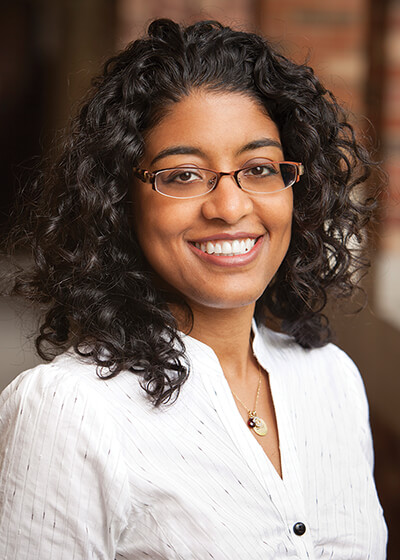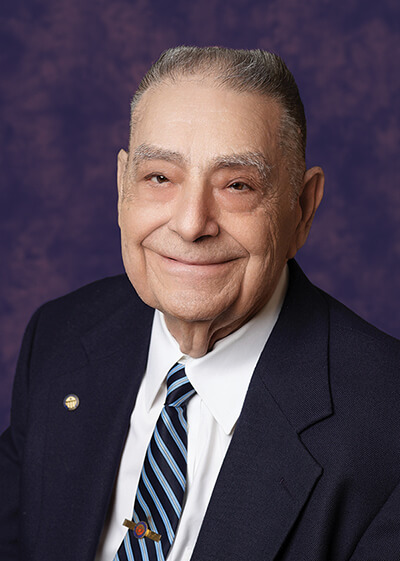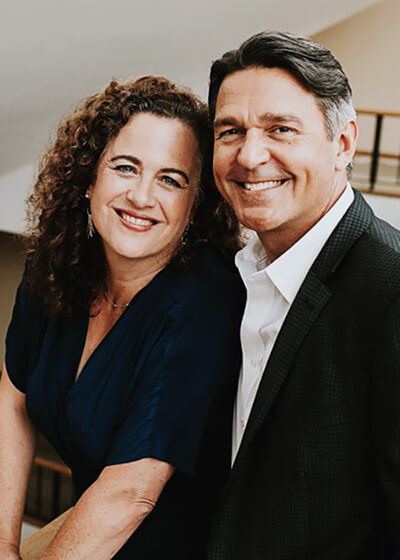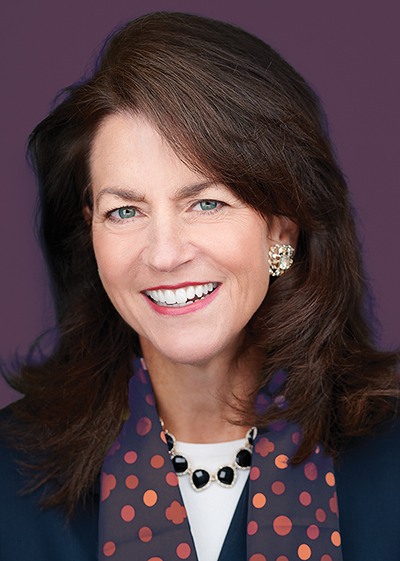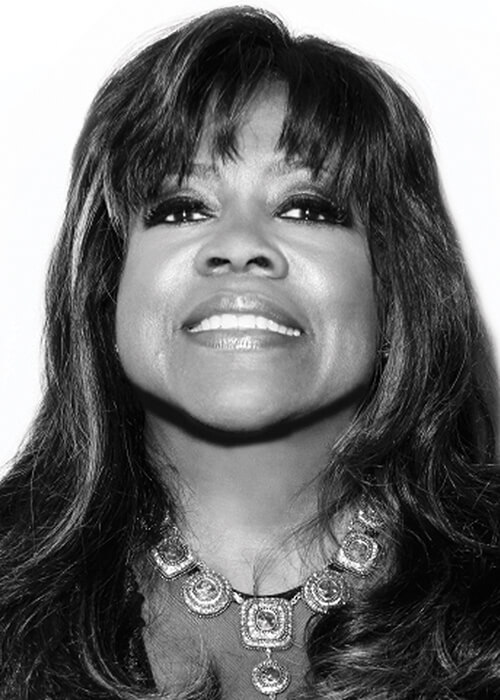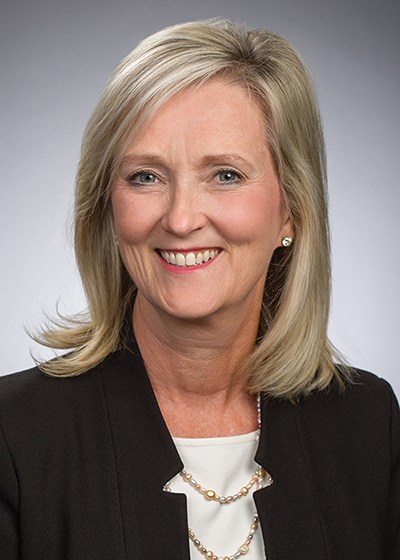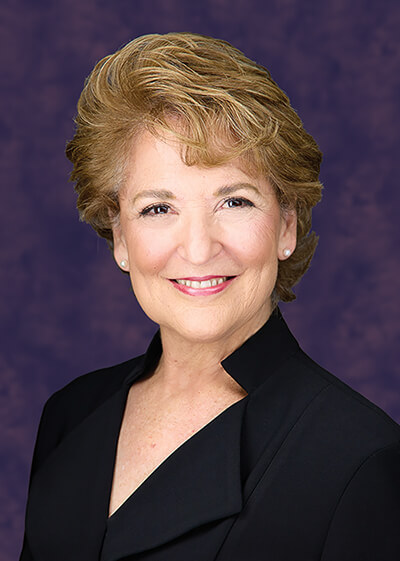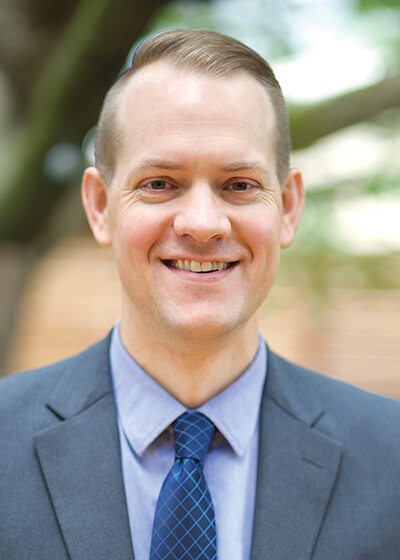2023 ALUMNI AWARDS
DIVERSITY AND INCLUSION AWARD
TRACEY MEARES
Yale Law School Professor addresses justice-system inequities
One of the nation’s leading authorities on policing in urban communities, Yale University Law School professor Tracey L. Meares, ’88 ENG, is the founding director of the school’s Justice Collaboratory, a research institute that applies science to the study of the criminal justice system and its inherent inequities. “We bring a multidisciplinary approach from the social sciences, humanities and the arts to develop theories of justice centered on what it takes to develop vital communities,” she says.
Prior to joining Yale’s faculty, Meares directed the Center for Studies in Criminal Justice at the University of Chicago Law School. She holds the distinction of being the first Black woman to be granted tenure at both law schools.
Meares’ personal experience of being denied the title of valedictorian at Springfield (Ill.) High School in 1984—despite compiling the top academic record—is chronicled in the documentary No Title for Tracey.
“Experiencing incidents of deep unfairness myself led me to study what it might take to rectify wrongs and create structures where everyone has a voice and can participate,” she says. —Paul Engleman
ALUMNI ACHIEVEMENT AWARD
DONALD BITZER
The father of PLATO
A multi-user, multimedia teaching system called PLATO. Plasma display panels. Gene-editing techniques to produce medically beneficial proteins.
They don’t seem connected, but Donald L. Bitzer, ’55 ENG, MS ’56 ENG, PHD ’60 ENG—a former engineering faculty member—is responsible for all these innovations.
By third grade, the precocious Bitzer controlled the temperature in his Collinsville, Ill., home with mercury switches. In high school, he and his uncle built a radio receiver to listen to World War II news from Europe. He had his pick of colleges, but a visit to Urbana impressed him.
From early on, Bitzer solved problems others couldn’t. After using computers and modeling to advance the field of coherent radar, he turned his talents to education, creating the first computer-assisted instruction program, Programmed Logic for Automatic Teaching Operations (PLATO) in 1960. At the time, students had to wait for computers to print output on cards or tape. So Bitzer co-invented plasma-display panels, allowing users to learn at individual terminals.
As the PLATO network grew, Bitzer and his colleagues developed error-correction techniques. They soon realized that their strategies worked similarly to the way DNA repaired damage, and began applying them in genomics.
Bitzer retired from Illinois in 1989 and is now a distinguished research professor at North Carolina State University, where he works on projects ranging from voice recognition to energy-from-fusion, while offering his time to mentor young engineers and scientists. —Cindy Kuzma
DISTINGUISHED SERVICE AWARD
NATHAN and JULIE GUNN
Renowned artists and educators shine in the world’s spotlights
Two remarkably talented individuals, working and living side-by-side as partners in music, education and life. That, in a nutshell, is the story of Nathan Gunn, ’94 FAA, and Julie Gunn, MMUS ’92, AMUSD ’01, though it barely scratches the surface of their accomplishments. The Gunns are superlative musicians—Julie is a pianist and music director, Nathan’s specialty is opera and sung theater—who have performed on the world’s most prestigious stages with many acclaimed musical artists.
“We met the first day of school in 1989,” Julie recalls. Professors at Illinois since 2007, they cofounded the nation’s first-ever Bachelor of Musical Arts in Lyric Theatre degree program, as well as Lyric Theatre @ Illinois.
Noting that she and Nathan were “nurtured by the Krannert Center under Mike Ross’ leadership,” Julie says they are forever grateful for the opportunity to pursue their careers and raise their family of five children “in a vibrant and supportive community. That has made all the difference in grounding us as people and artists.” —Paul Engleman
ILLINI COMEBACK AWARD
KAREN LAYNG
An attorney who aims to inspire
Returning to campus as the 2023 Illini Comeback Award recipient carries special meaning for Karen Layng, ’84 LAS, JD ’87. As a student, she worked to defray school expenses and rarely had time to attend football games. When she could attend Homecoming, she was inspired by alumni award honorees’ remarks.
For her own comeback, Layng hopes to be equally inspirational. The first in her family to attend college, she became the first woman to make partner at the law firm Vedder Price after having a baby. She also was the first woman president of the 7th Circuit Bar Association.
Layng now runs M.A.I.T Co., a firm she started in 2018 that serves construction and engineering companies. The firm’s name was inspired by the title of Elvis Costello’s album, My Aim Is True. It’s also the mantra that informs her endeavors.
For Layng, motivation and inspiration are closely tied to the Girl Scouts of the USA. A lifelong Scout herself, she recently finished her term as national president. Her goals? “To develop women leaders and mentor girls from kindergarten to the C-suite.” —David A. Scott
HONORARY ALUMNA AWARD
CHAZ EBERT
The wife and business partner of the late Roger Ebert champions empathy
It would be hard to name someone who has contributed more to Illinois’ focus on film and cinema studies than Chaz Hammel-Smith Ebert. The recipient of this year’s Honorary Alumna Award operates the movie review site, RogerEbert.com, the legacy of her late husband and business partner, film critic Roger Ebert, ’64 MEDIA. She’s the CEO of Ebert Productions, where she develops TV shows and produces the Ebertfest Film Festival in Champaign, which will celebrate its 25th anniversary in 2024. She also cofounded the Roger Ebert Center for Film Studies at Illinois.
Born in Chicago, Chaz graduated from the University of Dubuque (Iowa) in 1972 with a degree in political science. She earned her JD from DePaul University in 1977 and has worked on environmental issues as well as race- and aged-based discrimination.
“Roger believed that movies could generate empathy, and that putting yourself in another person’s shoes was one of the noblest things a film could do,” Chaz says. It’s her hope that students at the Ebert Center will make those values a core part of their own lives “to become ambassadors of empathy and compassion.”–Jonathan Black
LOU LIAY SPIRIT AWARD
MARY ELLEN PENICOOK
For the attorney, mom and Illini booster, Illinois is about family and fun
It was a beautiful evening in the long-ago when they climbed atop the State Farm Center, urged on by their undergraduate companions and temporary scaffolding. They hardly knew one another. Police sent them home still holding their beers. But not before John Penicook Jr., ’81 ACES, ’82 LAS, had asked Mary Ellen (Sirridge) Penicook, ’81 LAS, JD ’87, for a date.
They fell in love, graduated, married. He became an investment manager, she an attorney and civic leader. They had four kids kids, all alumni—a daughter and three sons who went on to marry Illini girls. John died in 2013 but his memory lives on: The street in front of the State Farm Center is now named John Penicook Drive. Mary Ellen says of the Center. “It’s about history and the present, about family and feelings.”
A tireless supporter, Penicook says, “When I’m on campus, I have so much fun that I think it’s infectious to others. It’s easy being a spirited supporter with all the important work taking place here.” —Mary Timmins
ALUMNI ACHIEVEMENT AWARD
SUZANNE KOENIG
An advocate for senior patients and the facilities that serve them
When she entered the University of Illinois with plans to become a social worker, Suzanne Koenig, ’82 SW, could hardly have envisioned the much larger role awaiting her. Over the three decades of her remarkable career, she has exerted a major healing influence on the senior health-care industry.
Her ambitions began to evolve while she was interning as a hospital discharge planner. “I found places for patients to go after treatment,” Koenig recalls. “But once they left, I had no follow-up.” At the nursing home where she subsequently worked, she got to spend time with its residents and found more ways to support them.
Koenig also had an affinity for management, and became an expert at turning around financially troubled senior-care facilities. Her skill set became formidable. In 2005, her work set the standard for the revision of Section 333 of the federal bankruptcy code, providing a provision to protect the rights of patients in health-care facilities facing backruptcy. She has taken on leadership of troubled facilities and served as the patient-care ombudsman in several court-mandated restructuring efforts. At the height of the pandemic, she was on the front lines arranging for personal protective equipment and helping to establish COVID-19 treatment units in skilled-nursing facilities around the nation.
Her company, SAK Healthcare, is regarded as the go-to firm in senior health care, offering services ranging from financial guidance to nursing and nutrition. Her team works with “banks, landlords, private equity and even corporations,” Koenig says. “I’m tirelessly focused on building the business and helping facilities all over the country.” And healing for all. —Mary Timmins
YOUNG ALUMNUS AWARD
DOUG LITTEKEN
The NASA engineer is a leading expert in structural softgoods
Sending humans into deep space requires solving hard problems—sometimes with soft materials. Fortunately, that’s where NASA engineer Douglas A. Litteken, ’11 ENG, MS ’16 ENG, has ample expertise.
In the aerospace industry, crewed softgoods, or inflatable habitats, are fabric-based structures that can be packed into rockets and then pressurized in space or upon landing. During and after a lengthy journey, astronauts could shelter in these safe, spacious dwellings.
Litteken first visited NASA’s Johnson Space Center when he was 10 years old. Instantly, he knew he wanted to work there. It happened quickly: While at Illinois, he spent three semesters as a NASA intern and was hired full-time after graduation.
Litteken hopes space travel takes humans beyond planetary boundaries, while deepening knowledge and respect for their existing habitat. “Exploration can help us understand more about how our Earth works and how we can help protect it in the future,” he says. —Cindy Kuzma

